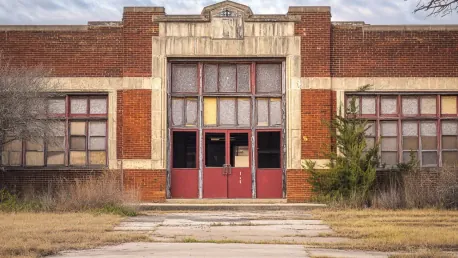The effects of Texas Governor Greg Abbott’s education funding policies have culminated in a severe crisis, with numerous neighborhood schools facing closure. The closure of schools in the state, especially in the Dallas-Fort Worth area, lays bare the significant impact of Abbott’s budget cuts over the past years. Despite Abbott’s claims of historically high education funding, many institutions are battling immense financial shortfalls, rendering their operations unsustainable. This situation not only disrupts students’ education but also erodes community trust in the state’s commitment to providing quality education.
Declining Enrollment and Financial Shortfalls
One of the most significant issues emerging from Abbott’s education cuts is the drastic decline in school enrollment figures. Many schools have witnessed a steep drop in student numbers, a situation exacerbated by their inability to adapt to inflation and escalating operational costs. The state has failed to provide adequate funding to keep up with these rising expenses, leading to a budgetary crisis that schools cannot cope with. As school budgets shrink, so do their abilities to attract and retain students, further compounding their difficulties.
The critical issue at hand is the deliberate nature of the policies implemented. Abbott’s strategy seems to involve systematically underfunding public schools, which inevitably leads to their poor performance. This underfunding creates a self-fulfilling prophecy, where schools are criticized for their struggles—a situation that Abbott uses to justify his controversial education reforms. The closure of schools is seen by many as a symptom of this larger strategic failure, where the needs of Texas students are sidelined in favor of the governor’s political agenda.
Abbott’s Voucher Plan and Wealthy Donors
Another controversial aspect of Abbott’s education policy is the promotion of his voucher plan, often termed “school choice.” This initiative purportedly aims to give families more educational options, but critics argue that it primarily benefits private schools that can selectively admit students based on various criteria, such as academic performance, special education requirements, or cultural alignment. Many families, particularly those with lower incomes, find these vouchers inadequate, as they often do not cover the full cost of private education, including additional fees.
Wealthy donors, such as Jeffrey Yass, Tim Dunn, and Farris Wilks, have been influential in shaping Abbott’s education policies. Their substantial financial contributions have driven the push for voucher programs that are seen as benefiting the elite rather than addressing the actual needs of the broader Texas community. Evidence from states with similar programs, like Arizona and Florida, highlights the adverse outcomes: increased budget deficits, cuts to essential services, and a noticeable drop in student performance in vital areas such as reading and math.
The Need for Revised Priorities
In response to the current crisis, advocacy for fully funding public schools has grown stronger. There is a pressing demand to increase the basic allotment for schools without imposing restrictive conditions, ensuring every institution has the resources necessary to avoid closure. The call is for equitable distribution of resources so that all schools, regardless of their location or demographics, can offer quality education and remain operational. Strengthening public schools is seen as a more beneficial long-term strategy than promoting vouchers that mainly serve private interests.
Texas citizens have voiced their opposition to the voucher plan, advocating instead for sustained and comprehensive funding to public schools. These voices echo the sentiment that public education should be a state priority, unaffected by external political influences. An adequately funded public education system is crucial for the growth and development of the state, providing every child with an opportunity to succeed.
Looking to the Future
The educational funding policies implemented by Texas Governor Greg Abbott have reached a critical tipping point, plunging many neighborhood schools into a state of crisis, with a significant number facing imminent closure. The impact of these closures is most acutely felt in the Dallas-Fort Worth area, revealing the ramifications of Abbott’s persistent budget cuts over recent years. Despite Abbott’s assertions that education funding has reached unprecedented levels, schools are grappling with substantial financial deficits that make it nearly impossible to maintain their operations. This dire situation has far-reaching consequences, severely disrupting the education of countless students and undermining the public’s confidence in the state’s dedication to providing quality education. The sense of instability created by these financial struggles not only affects academic performance but also weakens community bonds, as parents and local residents lose faith in the state’s ability to support its educational institutions effectively.









